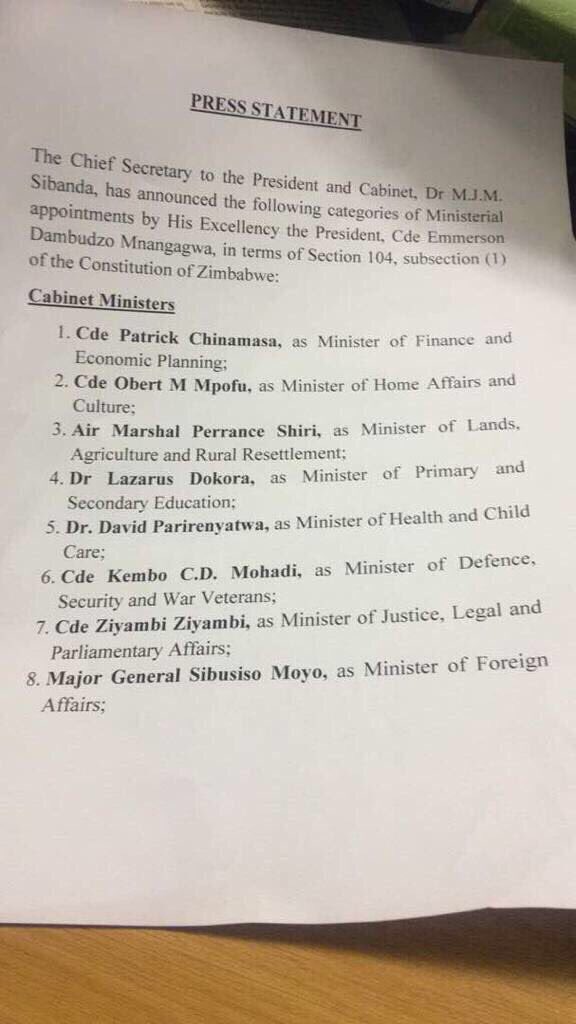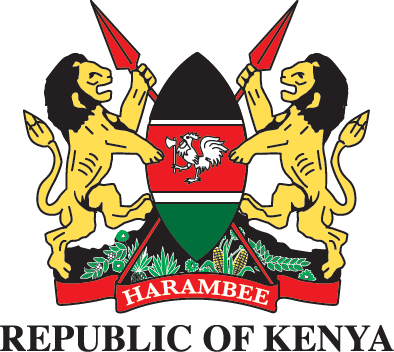
Akinwumi Adesina, President, Africa Development Bank declared to donate his $500, 000 SunHak Peace Prize to fighting hunger in Africa
For the Records: Africa has good news, By Akinwumi A. Adesina
Earlier today, I was greatly honored to receive the SunHak Peace Prize. For myself and my co-laureate and my dear sister, Waris Dirie, it’s also special, since the Prize this year goes to two Africans. And for both of us, our paths to be where we are today have been marked with challenges. That you shine your light on us today is due to providence and God’s blessings.
I grew up from a poor farming background to be who I am globally today as President of African Development Bank – Africa’s premier development institution, a World Food Prize Winner, and now a SunHak Peace Prize laureate.
In a similar way Waris’s story is incredibly inspiring, one of rising from being a refugee from Somalia to becoming a global supermodel, whose work is at the forefront of the global fight against female genital mutilation, for which she also is being awarded the SunHak Peace Prize: Our stories are like beauty from the ashes, a microcosm of the story of our continent: Africa. A story of a resilient continent, developing and making giant strides, despite all the odds.
For way too long the continent has been known and defined by negative imageries, of wars and conflicts. The good stories of Africa get shelved aside, but any misstep or challenge is made front news.
I am here today to tell you that Africa has good news and that Africa itself is good news!
Diamonds are found in the rough and are no different from any other rock. But with visionary eyes, skillful hands, diamond cutters cut through the rough edges, until they catch the streaks of sunlight, delivering the remarkable diamond sparkle we all have come to like so much.
Like the hidden potential of rough diamonds, we must work to fully unlock Africa’s potential. Africa must sparkle!
My mentor, Dr. Norman Borlaug, the late Nobel Peace Prize Winner, once said “nobody eats potential”. We are on a race with time to unlock the full potential of Africa.
The greatest asset of Africa is not its vast minerals, oil and gas. Africa’s greatest asset is its youthful population.
Africa’s youth population, currently estimated at 250 million, is expected to rise to 840 million by 2050. That’ll make Africa the youngest continent in the world, as many parts of the world are witnessing rapidly aging populations.
What we do with that population of youth today will determine the future of work in the world. Africa must become the brimming workshop of the world – with a knowledgeable and highly skilled workforce that’s able to propel the continent into the fourth industrial revolution.
Today, millions of these same young people have no jobs and many take enormous risks to cross the Mediterranean to seek a brighter future in Europe. I do not believe that the future of Africa’s youth lies in Europe; their future must lie in a thriving and more prosperous Africa.
Our challenge is to ensure that Africa’s economies grow more rapidly and in ways that create quality jobs for its teeming youths. Africa must arise and pull itself up, and develop with pride.
For there’s no pride in massive unemployment of youths. There’s no pride in seeing thousands drown on turbulent waters of the Mediterranean. That’s why the African development bank is pursuing major Jobs for Youth in Africa initiative to help African countries create 25 million jobs for its youth.
In collaboration with the Rockefeller Foundation, Microsoft, Facebook, LinkedIn and Safaricom, the Bank is developing 20 computer coding centers across Africa that will provide cutting edge coding skills to help turn the youth into job creators.
We are determined that the future Bill Gates and Steve Jobs will not only come out of Silicon Valley but out of Africa. And that’s already happening.
Mark Zuckerberg, the founder of Facebook, visited Nigeria in 2016 and is investing $24 million in Andela, a startup company by a young Nigerian, to nurture software developers for the world, out of Africa.
The Bank’s investment of $40 million in the Kigali Institute of Science and Technology in Rwanda, today helps train hundreds of top-notch ICT experts in a world class Masters program in collaboration with Carnegie Mellon University.
One of the graduates of the program, 30-year old Clarisse Iribagiza, grew her IT company which she recently sold for a whopping $20 million.
But we’re not just focusing on the IT sector, the Bank is also supporting the growth of young agribusiness and commercial farmers for the continent. Africa has 65% of the arable land left to feed the world by 2050.
What Africa does with agriculture will determine the future of food in the world. But we must make agriculture exciting for the youth. That’s why the Bank has invested $300 million in programs to support youths to take agriculture as a business.
One such entrepreneur is Dr. Aroge, a young medical doctor who found a new passion in agriculture and is now running his own 500 hectares commercial cassava farm and industrial processing of cassava into flour and starch. He like others are the new faces of African agriculture, young, fresh, dynamic and ready to take on the world.
I believe that the future millionaires and billionaires of Africa will come out of agriculture, the wealth of Africa, waiting to be unlocked to shine.
To shine, Africa must have universal electricity. Africa cannot develop in the dark. Some 600 million Africans do not have access to electricity. That’s why at the Bank we are investing rapidly to help light up and power Africa. We’re investing $12 billion in power to help leverage $45-50 billion to accelerate access to electricity for millions of people.
And the results are encouraging. The Bank helped to finance the largest concentrated solar power system in the world, in Morocco. We helped to finance Africa’s largest wind power station, at Lake Turkana, in Kenya. In 2017, 100% of the Bank’s investments in power generation was in renewable energy.
In Kenya, we’ve helped to connect over one million people to electricity through our support to the Kenyan government’s “last mile connectivity project” to connect poor households to grid power. A lady by the name Grace, a 70-year-old woman, whose house had just been connected to power in a village told me “we once were in darkness, now we can see”.
Such powerful stories can be told by the over 4.5 million people that we’ve helped to connect to new or improved electricity in 2018.
Light is so important. How would I see you or you see me tonight, in this magnificent place, if there’s no light? So important is it that the first thing that God did when he created the world was he said “let there be light”.
Africa is not hidden. It’s shining light is seen in its people, their entrepreneurship, creativity and intellectual accomplishments. But you rarely hear these stories: stories of its gallant strides, surmounting obstacles, rising each day, with determination to lead, not just follow. Few people know that Africa has produced 26 Nobel Prize Winners, including Nobel Peace Prize Laureates.
Africa’s boundless hope can be felt by those who invest there. Africa today has 6 out of the 10 fastest growing economies in the world. Africa is also the second destination in attracting foreign direct investment, second only to Asia. This year we project that GDP growth will rise to 4%, double what it was in 2016. And 45% of the countries will experience growth rate of above 5%. That’s way above the global growth average of 3%.
In November of 2018, the African development bank decided to take the story of Africa as an investment magnet to the rest of the world. We organized the first Africa Investment Forum.
The Forum was a unique one, without speeches; the focus sharply placed on transactions to invest in projects that’ll help change the lives of people on the continent. The buzz went out around the world and 2,000 participants showed up, with investors from 53 countries around the world. A total of $38.7 billion of investment interest for projects was secured in less than 72 hours.
What do these investors see? They of course know the challenges in Africa, but they see beyond challenges. They see opportunities.
It’s these opportunities that Korea also sees as it partners with the African Development bank. Indeed, in May last year the government of Korea hosted the annual meeting of the African Development bank in the beautiful city of Busan.
Ministers of finance from across Africa gathered for the Korea-Africa Forum for Economic Development (KOAFEC). It was amazing. The government of Korea signed a bilateral agreement for $5 billion support for Africa. It renewed its Korea Trust Fund at the African Development bank with an additional $18 million, bringing the fund to about $100 million, to support capacity building for Africans.
We’re setting up a Korea-Africa Tech Corps program that will link the young and bright tech entrepreneurs between Korea and Africa, in what’ll be a partnership for building our common wealth. Across all of Asia, from Japan, to China and India, there’s thriving partnerships that’ll make Asia and Africa grow together.
Today, Korean scientists from Silla University are helping Tunisians deploy drones to assess and monitor soil degradation. Rwanda is the first country in the world with a drone port, allowing it to transport blood for transfusion to remote highlands.
And more can be done, to build on Africa’s giant strides in mobile telephony. Today, Africa leads the world in the number of mobile phones. The mobile money transfer system that’s taking the world by storm started in Africa, with the M-PESA in Kenya, which now allows at least $23 billion to be moved through mobile phones.
The African Development Bank and the Bill and Melinda Gates Foundation have established a $ 400 million Financial Inclusion Fund to provide millions of low-income households, especially women, with access to savings bank accounts.
To power Africa’s drive into the fourth industrial revolution, we’re investing heavily in building ICT infrastructure across Africa. Our investment of $300 million in the Central Africa Backbone will accelerate access to Internet across this landlocked region.
Our $160 million investment in the Trans-Sahara backbone will connect Niger, Chad and Nigeria, to Algeria.
A digitally smart Africa will emerge, driven by technology, innovation and entrepreneurship.
When I was elected President of the African Development Bank in 2015, we sharply focused our work to help fasttrack Africa’s development. Our High 5 priorities were developed to: Light Up and Power Africa; Feed Africa; Industrialize Africa; Integrate Africa; and Improve the quality of life of the people of Africa.
Achieving these High 5s will, according to the UNDP, enable Africa to achieve 90% of the Sustainable Development Goals.
The Bank’s High 5s are having significant impacts across the continent. In 2018, 4.5 million people were connected to new or improved electricity grids through our “Light Up and Power Africa” High 5.
About 19 million people gained access to improved agricultural technologies under our Feed Africa High 5.
Our Industrialize Africa High 5 provided 1.1 million people to benefits from private sector investment projects.
About 14 million people gained access to better transport services through our Integrate Africa High 5.
And finally, 8 million people benefitted from improved access to water and sanitation under our “Improve the Quality of Life” High5.
By any measure these are very impressive numbers and impacts. But the needs in Africa are higher and we’ve still got a long way to go until we provide universal access to electricity; assure food security for the continent; integrate Africa; industrialize the continent; and improve the quality of life for Africans.
The Bank is engaged in discussions with its shareholders for a General Capital Increase for the Bank. This will allow us to do more for Africa, towards the Agenda 2063, “The Africa we want.”
And Korea has always been one of the Bank’s great supporters. We look forward to its strong support to help achieve this much needed General Capital Increase for the African Development Bank.
Just think about what Africa will look like with a General Capital Increase paid in capital for the African Development Bank:
*105 million people will get access to electricity
*137 million people will benefit from access to improvements in agriculture
*22 million people will benefit from private sector investment projects
*151 million people will have improved access to transport
*110 million people will have access to new and improved water and sanitation.
What a shining Africa that would be! As Africa’s “optimist in chief” let me say, you’ll hear a new song, as we encourage ourselves with a paraphrase of the words of the Psalmist: “Africa, arise and shine for your light has come and the glory of the Lord has risen upon you. Nations shall come to your light, and kings to the brightness of your rising”!
Like the sparkle of the diamonds, you’ll see a shining Africa, an Africa that despite its challenges has finally taken its place in the global community. Arise, Africa, for now is your destined time!
Thank you once again for the great honor of receiving the SunHak Peace Prize. God bless you all.
Concluded
Adesina President, African Development Bank Group, delivered this as keynote address at 2019 Sunhak Peace Prize Laureate, World Peace Summit, Seoul, South Korea,
•Adesina, the president, African Development Bank Group, delivered this as keynote address at the 2019 Sunbak peace prize laureate, World peace Summit, Seoul, South Korea.




Recent Comments